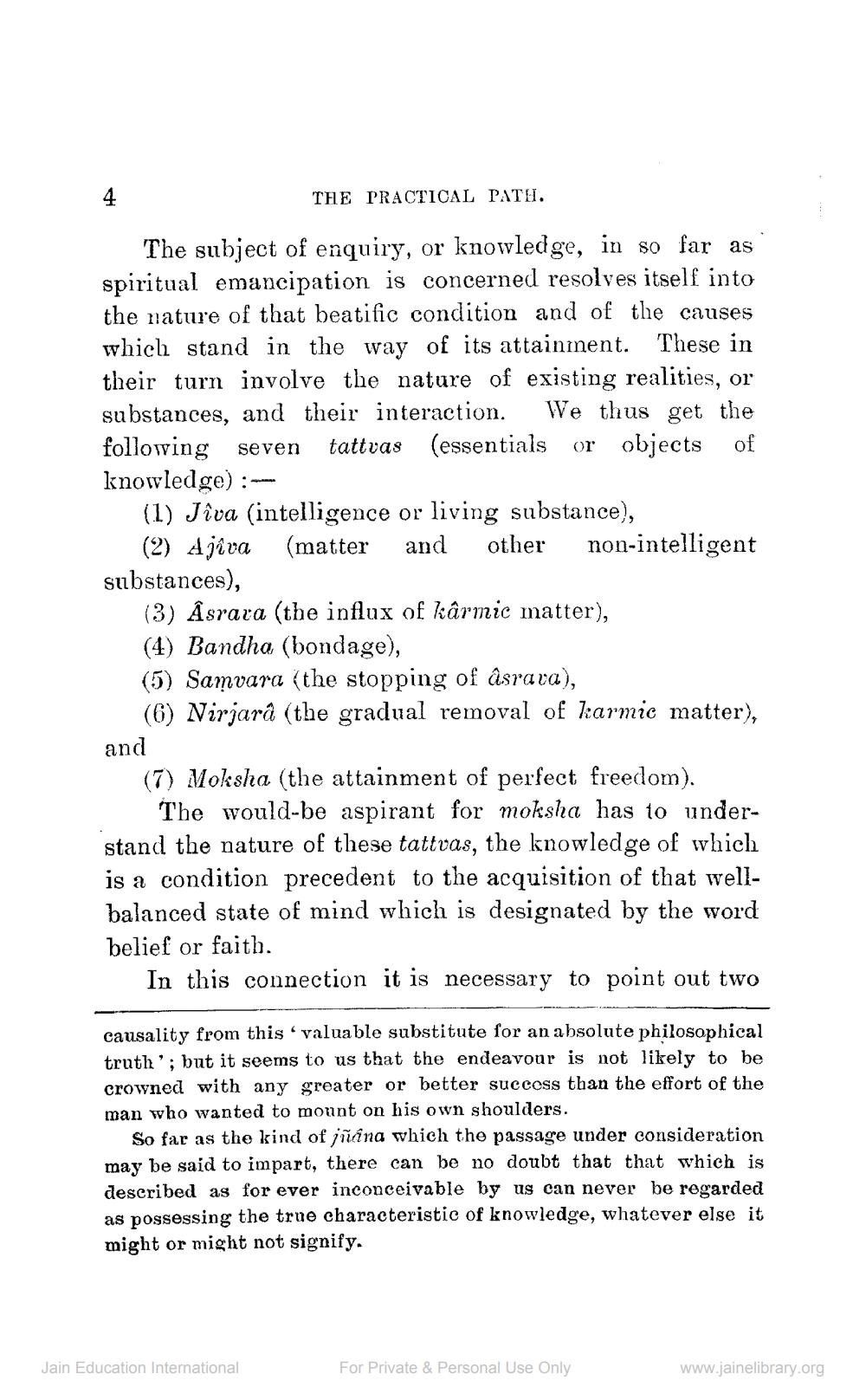________________
THE PRACTICAL PATH.
The subject of enquiry, or knowledge, in so far as spiritual emancipation is concerned resolves itself into the nature of that beatific condition and of the causes which stand in the way of its attainment. These in their turn involve the nature of existing realities, or substances, and their interaction. We thus get the following seven tattvas (essentials or objects of knowledge) :
(1) Jîva (intelligence or living substance),
(2) Ajava (matter and other non-intelligent substances),
(3) Asrara (the influx of karmic matter), (4) Bandha (bondage), (5) Samvara (the stopping of âsrava),
(6) Nirjará (the gradual removal of karmic matter), and
(7) Moksha (the attainment of perfect freedom).
The would-be aspirant for moksha has to understand the nature of these tattvas, the knowledge of which is a condition precedent to the acquisition of that wellbalanced state of mind which is designated by the word belief or faith.
In this connection it is necessary to point out two
causality from this valuable substitute for an absolute philosophical truth': but it seems to us that the endeavour is not likely to be crowned with any greater or better success than the effort of the man who wanted to mount on his own shoulders.
So far as the kind of jnana which the passage under consideration may be said to impart, there can be no doubt that that which is described as for ever inconceivable by us can never be regarded as possessing the true characteristic of knowledge, whatever else it might or might not signify.
Jain Education International
For Private & Personal Use Only
www.jainelibrary.org




